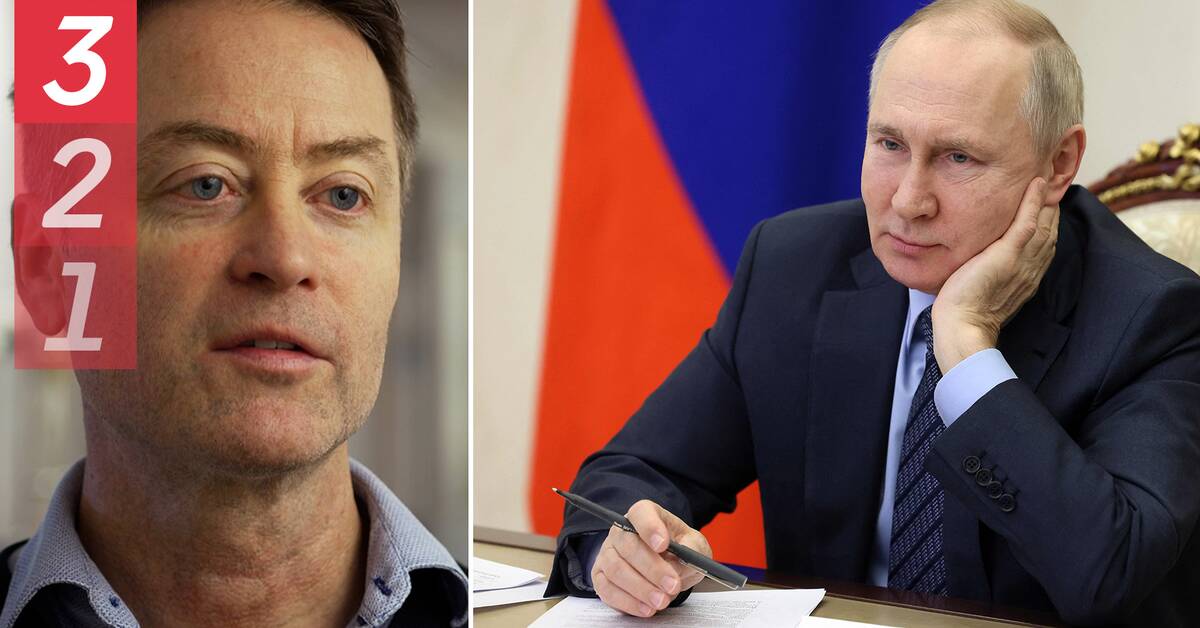What is the EU oil embargo?
In May, the EU countries decided on a sanctions package where oil imports from Russia to the EU are to be cut by 90 percent this year.
To a large extent, the EU has already cut down on oil imports from Russia, but now all oil that comes to the EU by sea is banned.
Several other countries, including the United States, have previously banned the import of Russian oil.
A temporary exception exists for the oil that is transported via pipelines to Hungary, among others.
What is the point of a price ceiling if you don't import oil anyway?
The point is to reduce Russia's export earnings by setting a maximum price for Russian oil sold to countries outside the EU – for example India and China.
- When Russia exports oil, the countries that buy the crude oil must not pay more than 60 dollars per barrel.
They want to limit the revenue that goes to Russia in this transaction, says Torbjörn Becker, director of the Eastern Economic Institute at the Stockholm School of Economics.
The G7 countries USA, Canada, Japan and Great Britain have also joined the agreement on a price ceiling.
How do you keep the price down?
This is done by prohibiting all companies in the countries that joined the price ceiling from insuring, transporting or trading Russian crude oil that costs more than 60 dollars per barrel.
Many of the companies that work in various ways to transport Russian oil to countries outside the EU are located in Europe and other Western countries.
Therefore, through the ban, the price of Russian oil can also be controlled in the rest of the world.
- In Greece, they have a very large tanker fleet and they ship a very large part of the Russian oil, says Torbjörn Becker, director of the Eastern Economic Institute at the Stockholm School of Economics.
How much did the Russian oil cost before?
The world market price of oil is somewhere between 80 and 90 dollars per barrel.
But since Russia invaded Ukraine, many countries have not wanted to import Russian oil.
- When Russia has now sold oil to India and China, for example, they have had to give a discount in order for them to buy this oil, says Torbjörn Becker, director of the Eastern Economic Institute at the Stockholm School of Economics.
Then the price of Russian oil has instead been around 60 dollars per barrel, according to Torbjörn Becker.
Does this affect Russia's economy?
- In the short term, there is not that much of a difference between the price ceiling and the price that Russia receives today for its oil on the world market, the difference is a few dollars, says Torbjörn Becker.
- However, it must be remembered that if you can keep a price ceiling at a depressed level for an extended period of time, this also poses a problem for the Russian economy.
Why not set a lower price ceiling on oil?
The EU has long tried to agree on a price ceiling for oil.
Some countries, such as Poland, have wanted to see a much lower price ceiling, lest Russia's economy be hit harder.
- It gives Russia far too much income, so many argue that the ceiling should rather be around 30 dollars per barrel, says Torbjörn Becker, head of the Eastern Economic Institute at the Stockholm School of Economics.
But other countries, including Greece, have criticized an oil price that is too low.
It is feared that Russia would then stop exporting oil altogether.
- If 4-5 million barrels of oil a day disappear because Russia stops exporting, it could have consequences on the commodity market and cause the energy price to rise more than it has so far, says Torbjörn Becker.

